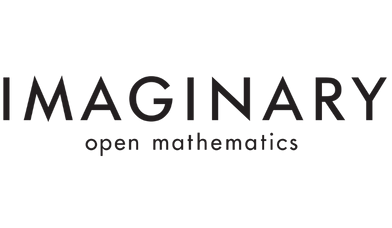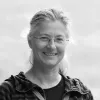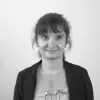

I work at IMAGINARY designing and developing interactive exhibits, as well as many other types of strategies for communicating mathematics and STEAM. Depending on the project, I might work on the concept, text, art, design, or software, and I like coming up with unique solutions that come from being able to approach a problem from both ends simultaneously.
I have a decade of experience as a full-stack freelance web developer and another decade of experience as a hardcore (C++ under UNIX and Win32 environments) commercial software developer in the interactive telephony world. I worked on projects at large multinationals, small companies, non-profits, NGOs, and different government offices. I did significant work in the visual art world (mainly with Fundación START in Argentina).
I studied physical theater and accumulated over a hundred hours on stage with several independent plays in Buenos Aires. I use this experience in my work, as physical theater gives a great framework to approach visitor experience design and user engagement from a holistic and body-first perspective.

Bianca Violet studied at the Technical University of Berlin and graduated there in 2009 with a degree in mathematics, majoring in differential geometry. Parallel to her studies, she also trained as a film and video editor and then, fascinated by IMAGINARY, started working for this unique mathematics communication project. Since 2016, she has been permanently employed by IMAGINARY as Chief Creative Officer and - typical for a project that grew out of science - is responsible for all kinds of major and minor tasks.
AI Explorables for Schools

Christian Stussak leads the development of digital exhibits at IMAGINARY, a non-profit organisation for the communication of modern mathematics. He completed his doctorate in computational geometry and visualisation at the University of Halle (Saale) and has been working in the field of interactive and participatory knowledge transfer since 2007.
His main focus is on the software- and hardware-based planning and implementation of exhibits and their integration into exhibitions in physical as well as virtual space. He uses a wide range of tools, from web technologies to microcontroller programming.

Antonia Mey, a physicist by training, is a Chancellor’s Fellow in the School of Chemistry at the University of Edinburgh, where she leads a research group working in the area of computational biophysics and machine learning to understand how proteins function at an atomistic level.
She first started working with IMAGINARY as a freelance project manager in 2014 and has contributed to various exhibitions and workshops around the world on different mathematical topics including most recently giving a talk on AI at the Heidelberg Laureate Forum in 2022.
In general, Antonia is an advocate for open-source software not just in the scope of mathematics outreach. She is an editor for the Living Journal of Molecular Sciences and the Journal of Open Source Software promoting Dimond open access publication styles.

Andreas Daniel Matt is the director of IMAGINARY, a non-profit organisation for the communication of modern mathematics. He holds a PhD in Machine Learning (Reinforcement Learning) from the Universidad de Buenos Aires and the University of Innsbruck and has 18 years of experience in interactive and participatory knowledge transfer. He worked at the Mathematical Research Institute Oberwolfach from 2007 to 2016 and co-founded IMAGINARY. His work has been awarded the Media Prize of the German Mathematical Society 2013 and the ECSITE Mariano Gago Award 2020, among others.
